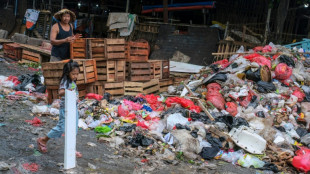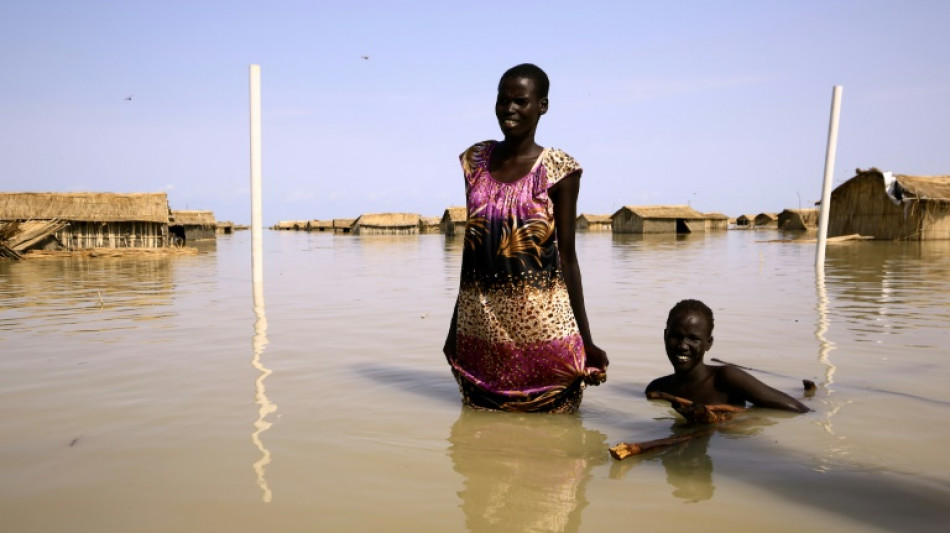
-
 MSF will keep operating in Gaza 'as long as we can': mission head
MSF will keep operating in Gaza 'as long as we can': mission head
-
Russian Filippov wins first medal at Milan-Cortina Games for individual neutral athletes

-
 Italian Milan takes sprint honours at UAE Tour
Italian Milan takes sprint honours at UAE Tour
-
Dozens killed in jihadist attacks in northwest Nigeria

-
 Zimbabwe unbeaten in T20 World Cup after six-wicket Sri Lanka win
Zimbabwe unbeaten in T20 World Cup after six-wicket Sri Lanka win
-
Postecoglou admits taking Nottingham Forest post a 'bad decision'

-
 Switzerland's Fatton wins women's ski mountaineering sprint on Olympic debut
Switzerland's Fatton wins women's ski mountaineering sprint on Olympic debut
-
Kinghorn, Van der Merwe return for Scotland against Six Nations strugglers Wales

-
 Repsol says could boost Venezuela oil output over 50% in 12 months
Repsol says could boost Venezuela oil output over 50% in 12 months
-
UN says Israeli actions raise 'ethnic cleansing' fears in West Bank, Gaza

-
 Arteta tells faltering leaders Arsenal to harness Wolves 'pain' against Spurs
Arteta tells faltering leaders Arsenal to harness Wolves 'pain' against Spurs
-
Crowley gets nod for Irish as Prendergast drops out

-
 Unbeaten Swiss to meet Great Britain in Olympic men's curling semis
Unbeaten Swiss to meet Great Britain in Olympic men's curling semis
-
UK police arrest ex-prince Andrew on suspicion of misconduct

-
 Oil extends gains on US-Iran tensions, Europe stocks slide
Oil extends gains on US-Iran tensions, Europe stocks slide
-
Former prince Andrew, a historic downfall

-
 Sri Lanka post 178-7 against Zimbabwe ahead of T20 Super Eights
Sri Lanka post 178-7 against Zimbabwe ahead of T20 Super Eights
-
OpenAI's Altman tells leaders regulation 'urgently' needed

-
 US renews threat to leave IEA
US renews threat to leave IEA
-
Liverpool boss Slot says Isak in 'final stages of rehab'

-
 Airbus ready to build two new European fighter jets if 'customers' ask
Airbus ready to build two new European fighter jets if 'customers' ask
-
UN Sudan probe finds 'hallmarks of genocide' in El-Fasher
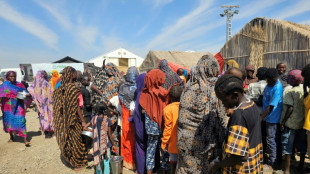
-
 Costelow starts, Hamer-Webb makes Wales debut in Six Nations clash with Scotland
Costelow starts, Hamer-Webb makes Wales debut in Six Nations clash with Scotland
-
Facing US warnings, Iran defends right to nuclear enrichment

-
 Ex-South Korea leader Yoon gets life in prison for insurrection
Ex-South Korea leader Yoon gets life in prison for insurrection
-
OpenAI's Altman says at India summit regulation 'urgently' needed

-
 British couple held in Iran sentenced to 10 years
British couple held in Iran sentenced to 10 years
-
West Indies ease past Italy to tune up for T20 Super Eights

-
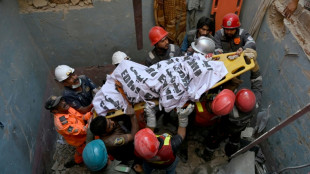 At least 16 killed after building collapses in Pakistan following blast
At least 16 killed after building collapses in Pakistan following blast
-
Summit photo op fails to unite AI startup rivals

-
 OpenAI's Altman says world 'urgently' needs AI regulation
OpenAI's Altman says world 'urgently' needs AI regulation
-
Horror comics boom in our age of anxiety

-
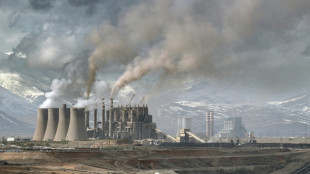 Turkey fires up coal pollution even as it hosts COP31
Turkey fires up coal pollution even as it hosts COP31
-
London fashion week opens with tribute to one of its greats

-
 Ex-S.Korea leader Yoon gets life in prison for insurrection
Ex-S.Korea leader Yoon gets life in prison for insurrection
-
Pea soup, veggie mash contest warms up Dutch winter

-
 South Korea's Yoon: from rising star to jailed ex-president
South Korea's Yoon: from rising star to jailed ex-president
-
Private companies seek to import fuel amid Cuban energy crisis

-
 India search for 'perfect game' as South Africa loom in Super Eights
India search for 'perfect game' as South Africa loom in Super Eights
-
India's Modi calls for inclusive tech at AI summit

-
 Airbus planning record commercial aircraft deliveries in 2026
Airbus planning record commercial aircraft deliveries in 2026
-
Elections under fire: Colombia endures deadliest campaign in decades

-
 Traore backs 'hungry' Italy against France in Six Nations
Traore backs 'hungry' Italy against France in Six Nations
-
All-rounder Curran brings stuttering England to life at the death

-
 South Korea court weighs death sentence for ex-president Yoon
South Korea court weighs death sentence for ex-president Yoon
-
Tech chiefs address India AI summit as Gates cancels

-
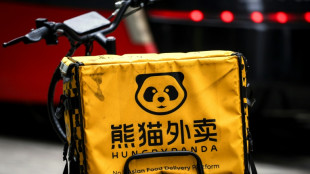 Australia rejects foreign threats after claim of China interference
Australia rejects foreign threats after claim of China interference
-
Somali militias terrorise locals after driving out Al-Qaeda

-
 Peru picks Balcazar as interim president, eighth leader in a decade
Peru picks Balcazar as interim president, eighth leader in a decade
-
Australian defence firm helps Ukraine zap Russian drones


Climate migrants could face a world of closing doors
People driven from their homes as global warming redraws the map of habitable zones are unlikely to find refuge in countries more focused on slamming shut their borders than planning for a climate-addled future, according to a top expert on migration.
From fleeing a typhoon to relocating in anticipation of sea level rise, climate migration covers a myriad of situations and raises a host of questions.
But one thing is sure: the number of climate refugees is going to increase in the coming decades, according to a major UN report on climate impacts and vulnerability released on Monday.
"We are on the cusp of a major environmental change that is going to redistribute populations on a planetary scale," Francois Gemenne, a lead author of the Intergovernmental Panel on Climate Change (IPCC) report, told AFP.
"But clearly -- given the current political climate -- we are not at all ready to confront this kind of question," he said in an interview.
"Rather, there's a tendency to shutter borders and erect walls topped with razor wire."
Which is why the temptation to raise the spectre of mass climate migration in order to spur more aggressive action in curbing carbon pollution is so dangerous, said Gemenne, a professor at Liege University in Belgium.
"Even if it's done with the best of intentions, this risks reinforcing xenophobic attitudes," he said.
But the problem is already here-and-now, even if so-called "climate migrants" have no legal status, nationally or internationally.
- Environment is economy -
"In 2020, some 30 million people were displaced by extreme weather events made worse by climate change -- three times more than the number displaced by violence or conflict," Gemenne said.
Most people forced to abandon their homes due to droughts, storms and floods made worse by global warming are in the global South, and most remain within the borders of their countries.
Many of those who do wind up on the edge of Europe or the southern border of the United States are often labelled "economic migrants", suggesting that they are pulled by opportunity rather than pushed by catastrophe, Gemenne said.
"My salary and yours does not depend on environmental conditions," Gemenne said. "But for a lot of people on this planet who depend on rain-fed agriculture, the economy and the environment are the same thing."
Sea level rise alone could displace hundreds of millions of people by century's end, with low-lying coastal regions expected to be home to more than a billion people by 2050, according to the IPCC report.
Vast expanses of agricultural land, particularly in deltas, are also at risk.
But predictions of how many climate migrants there might be in 30, 50 or 80 years are confounded by unknown variables and choices not yet made.
"It's very complicated and hard to say because we're talking about human behaviour, which can sometimes be irrational", Gemenne said.
"It's not really something that the IPCC can model."
- A 'virtual state'? -
The best projections to date may come from the World Bank, which has calculated up to 216 million people could be internally displaced by mid century, even under an optimistic greenhouse gas emissions scenario.
Although Gemenne said that does not mean this number will definitely be forced from their home.
Impacts can be softened by early warning systems, financial compensation or long-term planning, he added.
Indonesia recently made the extraordinary decision to move its capital to Borneo from Jakarta, on the island of Java, because the megapolis is being overtaken by rising seas and sinking due to depleted aquifers.
Rich countries "under the impression that big infrastructure projects will be enough to protect their populations" would do well to take note, Gemenne said.
The catastrophic flooding that ravaged parts of Germany and Belgium, as well as inundations in New York and cities in China should be a red flag, he warned.
"We need to collectively rethink where we can live, and where we can allow people to live."
For some countries, the forecasts are even more dramatic.
Tuvalu, the Marshall Islands and other low-lying island archipelagos risk disappearing entirely, raising fundamental questions about the very definition of a nation state.
If a country disappears physically, can they still have a seat at the UN?
Do their citizens -- living, perhaps, as refugees in another nation -- become stateless?
Can there be such a thing as a "virtual state"?
"Climate change is going to challenge the very foundations of international relations," Gemenne said.
S.Gregor--AMWN



